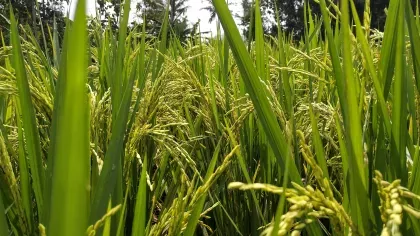26 February 2018
Lupins: bitter plants with a sweet after-taste
This tough, resilient and bitter legume crop once fuelled the Roman legions and the Incas.

Out of the strong came forth sweetness
What is the first thing that comes to mind when you think about lupins?
Maybe colourful flower spikes in the country garden or the plundered loot of a misguided highwayman in the Monty Python ‘Lupin Express’ sketch?
Dig a bit deeper and you find that lupins (Latin for ‘wolfish’) live up to their formidable name. The bitter and resilient legume has survived centuries of history. Whilst you shouldn’t eat the garden variety, this crop can be transformed into a sweet alternative with the right treatment.
A superfood in its own right
The inclusion of ‘superfoods’ in our diet promises to change our lives. The humble lupin has so far shied away from such grandiose claims, but maybe it needs to become a bit more wolfish.
Lupin seeds have been shown to have potent anti-diabetes and anti-inflammatory properties.
Seeds are both high in protein and fibre, and low in carbohydrate and oil; the perfect antidote to the imbalanced Western diet.
While its use in Europe has mainly been as animal feed, it is increasingly used in all sorts of products including ice cream and yogurts.
Sweetening the deal
The people of the Amhara region of northern Ethiopia are onto a good thing.
They eat white lupins seeds every day: roasted and pickled snacks for adults, and also as an ingredient in baby food. There is one problem though: the seeds of Ethiopian varieties are full of bitter alkaloids, which must be washed out before they can be eaten.
Not only does this take time and copious amounts of precious water, it also makes lupin products impractical to feed to animals. Ethiopian livestock have protein-deficient diets and lupins could help address this problem.
European plant breeders overcame this problem by breeding sweet lupins that are naturally low in alkaloids. So they are good to eat by both animals and humans alike.
Sweet lupins for Ethiopia
Dr Likawent Yeheyis, the Research Director of the Amhara Regional Agricultural Research Institute, recognised the huge potential for lupin in both human and animal food chains in Ethiopia if sweet varieties could be developed for the unique Ethiopian growing conditions.
In 2017 a UK-Ethiopian collaborative project was launched to help develop sweet lupins for Ethiopia.
Using our world-renowned plant diversity expertise – and aided by collections at the Millennium Seed Bank – Kew scientists are searching for the genes that make European varieties sweet. This knowledge will help scientists to breed Ethiopian sweet lupins for the first time.
We are also investigating how genetically diverse Ethiopian varieties are, and whether they need a fresh injection of diversity from their wild Mediterranean ancestors.
Our UK industry partners are working to identify the market potential for sweet lupins in the Ethiopian animal feed industry too.
The goal is to develop productive sweet lupins for Ethiopia. If we can do that, and harness the power to provide a nutritious, easy-to-grow, tasty crop, then this partnership will see this tough crop species feed more people than ever before.
This research is funded by Innovate UK project 'Ethiopian Lupins for Food and Feed' (project ref: 133048)


